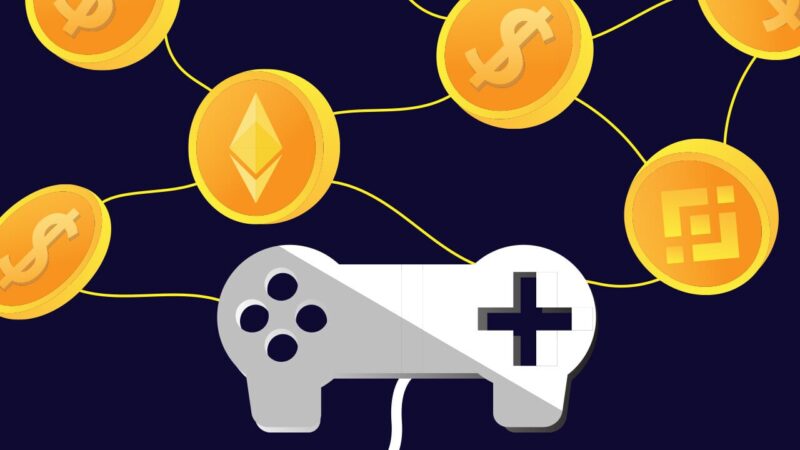The gaming industry has always been at the forefront of innovation, pushing boundaries to deliver immersive experiences to players worldwide. With the advent of blockchain technology, a new wave of transformation is sweeping through the gaming industry.
Crypto gaming, the fusion of cryptocurrencies and gaming, is revolutionizing the way players interact, trade, and monetize in-game assets. In this article, we will explore how blockchain technology is reshaping the gaming landscape, the benefits it brings, and the challenges it faces.
What is Crypto Gaming?
Crypto gaming refers to the integration of blockchain technology and cryptocurrencies into traditional gaming systems. It enables players to own, trade, and monetize in-game assets using blockchain-based tokens.
Unlike traditional gaming, where ownership of in-game assets is centralized and controlled by game developers, crypto gaming empowers players with true ownership and control over their digital items.
Do check out: Top 10 Altcoins to Watch in 2023
Benefits of Blockchain in Gaming
- True Ownership and Interoperability Blockchain technology enables players to truly own their in-game assets. Through the use of non-fungible tokens (NFTs), unique digital items can be created, bought, and sold on blockchain platforms. These NFTs are recorded on a decentralized ledger, ensuring transparency, authenticity, and scarcity. Moreover, blockchain’s interoperability allows players to use their assets across multiple games and platforms, increasing their value and utility.
- Transparent and Secure Transactions Blockchain’s transparent and immutable nature ensures that all transactions within crypto games are verifiable and secure. The use of smart contracts eliminates the need for intermediaries, reducing fraud and enhancing trust among players. Additionally, blockchain’s decentralized infrastructure protects players from centralized shutdowns and censorship, as game data is stored on multiple nodes across the network.
- Play-to-Earn Opportunities One of the most significant advantages of crypto gaming is the concept of play-to-earn. In traditional games, players invest time and effort without the possibility of real-world value return. In contrast, crypto games reward players with blockchain-based tokens or assets that can be traded or sold for real money. This opens up avenues for players to earn income while enjoying their favorite games.
Examples of Crypto Gaming Use Cases
- Crypto Collectibles Crypto collectibles, also known as NFTs, have gained immense popularity in the crypto gaming space. These unique digital assets can represent anything from virtual pets, characters, or rare in-game items. Popular examples include CryptoKitties and Axie Infinity, where players can breed, trade, and sell their digital pets.
- Decentralized Virtual Worlds Blockchain-based virtual worlds, such as Decentraland and The Sandbox, allow players to own and build on virtual land using NFTs. These virtual worlds offer a decentralized environment where players can interact, create content, and monetize their creations.
- In-Game Economies and Marketplaces Blockchain technology facilitates the creation of in-game economies with player-driven marketplaces. Games like Gods Unchained and Spells of Genesis enable players to buy, sell, and trade in-game assets directly with other players. This opens up opportunities for entrepreneurial players to profit from their skills and assets within the game.
Challenges and Future Outlook
- Scalability and User Experience Blockchain technology still faces scalability challenges in terms of transaction speed and cost. To achieve mainstream adoption, crypto games must provide a seamless and user-friendly experience, ensuring that blockchain technology remains in the background.
- Regulatory Environment As crypto gaming gains popularity, regulatory frameworks may be established to address concerns such as money laundering, taxation, and investor protection. Striking a balance between regulation and innovation will be crucial for the industry










